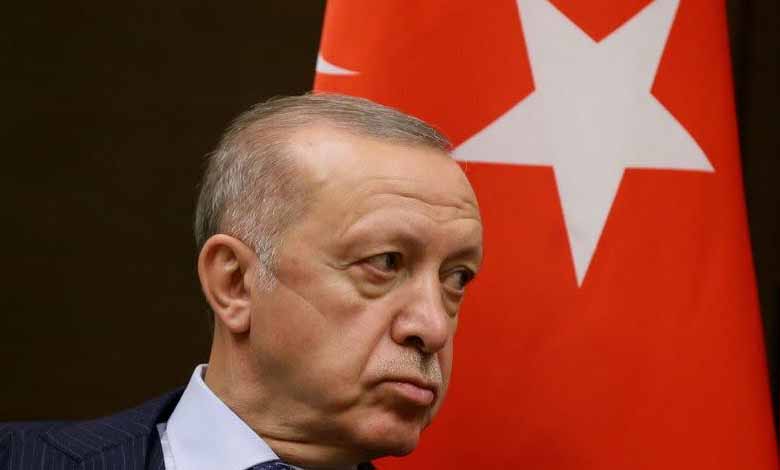Turkey plans to expand its influence in northern Syria in alliance with terrorism

“The city of Afrin in northwestern Syria and other areas under the control of Turkish-backed militias has seen a dramatic shift of control since last week, raising questions about Ankara’s calculations in its quest to mend relations with Damascus, as the Turkish regime has failed to transform the militias into a regular army and is unable to impose full control over the areas in which it is present.”
Control of terrorism
HTS is the extremist group that controls Idlib province and is classified as a terrorist group, and is allied with factions of the militias of the so-called Turkish-backed Syrian National Army – Firqat Hamza, Sultan Suleiman Shah Corps, and Ahrar al-Sham – the most powerful and dominant group, as it prepares to storm Afrin, the predominantly Kurdish city that Turkey captured in Operation Olive Branch in 2018. HTS and its partners ousted Jabhat al-Sham and Jaish al-Islam from the area on October 13, the U.S.A.S. website confirmed. Al-Monitor that the Sham Corps, one of the groups closest to Turkey, which controlled a key area on the road from Idlib to Afrin, showed no resistance, and in October 13, and in Afrin Tahrir al-Sham captured 26 villages and towns, while Sultan Suleiman Shah’s division, which advanced from the west, took 13 villages and Hamza’s division took control of the area northwest of Afrin.
The report confirmed that HTS’ objectives appeared on the night of October 13 when it sat down for ceasefire talks with the Third Corps under Turkish supervision at the Bab al-Hawa border crossing. The group reportedly put forth conditions that they would be allowed to enter the Euphrates Shield and the Olive Branch pockets.
Militia condition
The U.S. Monitor report asserted that the conditions were for achieving the goals of armed militias, unifying them under one command, disrupting those who refuse to comply, withdrawing armed groups from civil administration and residential checkpoints, deploying them along the lines of contact with regime-held areas and the Syrian Democratic Forces, leaving internal security to the Salvation Government forces, the de facto administration set up by Hayat Tahrir al-Cham in Idlib, and the U.S. website noted that the terms were accepted in a third round of talks on October 16, even though the deal was not officially announced or confirmed, and it is said that discussions are ongoing about how to implement the deal.
Controversies with Turkey
According to the Syrian Observatory for Human Rights, Turkish forces and members of HTS conducted joint patrols in Afrin on 16 October. They point to the conflict between extremist militias allied with Turkey dating back to 2017 when Ahrar al-Sham lost members of the Levant Front. The defectors’ subsequent return led to clashes between the two factions, with Ahrar al-Sham receiving support from Hayat Tahrir al-Cham. Ahrar al-Sham, Firqat Hamza and Sultan Suleiman Shah are seen as trojan horses used by Hayat Tahrir al-Cham to expand their presence in areas controlled by Turkish-backed groups. The latest confrontation erupted over the killing of an opposition activist in Al-Bab City in October, and Ahrar al-Sham was blamed for this move, while Hayat Tahrir al-Cham was blamed on Hamza “Turkey’s position could change if the deal fails and clashes spread.”
Turkey’s Plans
Observers added that Turkish officials denied Turkey’s support for Hayat Tahrir al-Cham, and Ankara’s silence on the clashes and the attempt to mediate has given rise to two conflicting interpretations of its differential calculations. First, Turkey plans to leave the area under Hayat Tahrir al-Cham control and is revising its policy toward Syria. In the case of reconciliation with Damascus, Hayat Tahrir al-Cham will be the one Ankara will throw under the bus.












